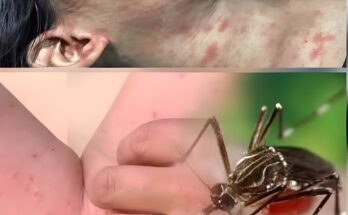
Who Is Involved
Julia Wandelt, a 24-year-old Polish national, has claimed since at least 2022 that she is Madeleine McCann — the British child who disappeared in 2007 at the age of three.
Karen Spragg, 61, from Cardiff, is charged alongside Wandelt. Prosecutors allege that she supported or assisted Wandelt in her campaign to contact the McCann family.
Kate and Gerry McCann, along with their children Amelie and Sean, are the alleged victims of stalking and harassment carried out by Wandelt and Spragg.
The Allegations
Investigators say Wandelt made repeated phone calls, sent emails, and delivered messages to the McCann family in which she claimed to be Madeleine or demanded a DNA test to “prove” it.
She also allegedly sent doctored images to resemble the McCann family, described “memories” from Madeleine’s early life, and even visited the family’s home.
Both Wandelt and Spragg have been charged with one count of stalking causing serious alarm or distress, relating to incidents between June 2022 and February 2025. They deny the allegations.
The DNA Test: What Happened and What It Showed
Why a Test Was Conducted
Police policy typically discourages DNA testing of people who claim to be Madeleine McCann unless there is credible evidence supporting the possibility. Authorities fear such tests could encourage false claims and raise false hopes for the McCann family.
However, Detective Chief Inspector (DCI) Mark Cranwell, head of Operation Grange, authorized a DNA test for Wandelt after her arrest in February 2025. His stated aim was to “help bring an end to her behaviour toward the McCann family.”
How the Test Was Done
Wandelt was arrested at Bristol Airport and provided a DNA sample, which was sent for forensic comparison.
In April 2025, while in custody at Peterborough Prison, DCI Cranwell informed her that her DNA had been compared with the official profile held for Madeleine McCann.
The Results
The analysis conclusively showed that Wandelt is not Madeleine McCann. The two DNA profiles did not match.
When told of the results, Wandelt reportedly questioned whether authorities “really want to find Madeleine,” to which DCI Cranwell responded that they did.
Emotional and Policy Implications
DCI Cranwell acknowledged that conducting the DNA test broke from standard procedure, recognizing the potential for false hope, intense media attention, and further false claims.
He also noted that even with definitive scientific proof, Wandelt might still refuse to accept the findings.
The McCann family described the ordeal as “deeply distressing.”
- Kate McCann testified that she felt “invaded” and frightened when Wandelt and Spragg appeared at her home demanding a DNA test.
- Amelie McCann, Madeleine’s twin, called Wandelt’s messages “creepy,” particularly those referencing shared childhood memories and altered photographs.
Ongoing Trial and Broader Concerns
Both Wandelt and Spragg deny the stalking charges, and their trial remains ongoing.
Despite the conclusive DNA evidence, investigators worry that Wandelt may continue to insist she is Madeleine. Police have also expressed concern that testing claimants like her could set a precedent encouraging others to make similar false assertions.
Significance
The DNA results scientifically end the claim that Julia Wandelt is Madeleine McCann.
However, the emotional and legal consequences continue. The findings may strengthen the McCanns’ case that they suffered significant distress from persistent harassment.
For law enforcement, the case highlights the delicate balance between compassion for individuals making such claims and the need to protect victims from ongoing harm.



